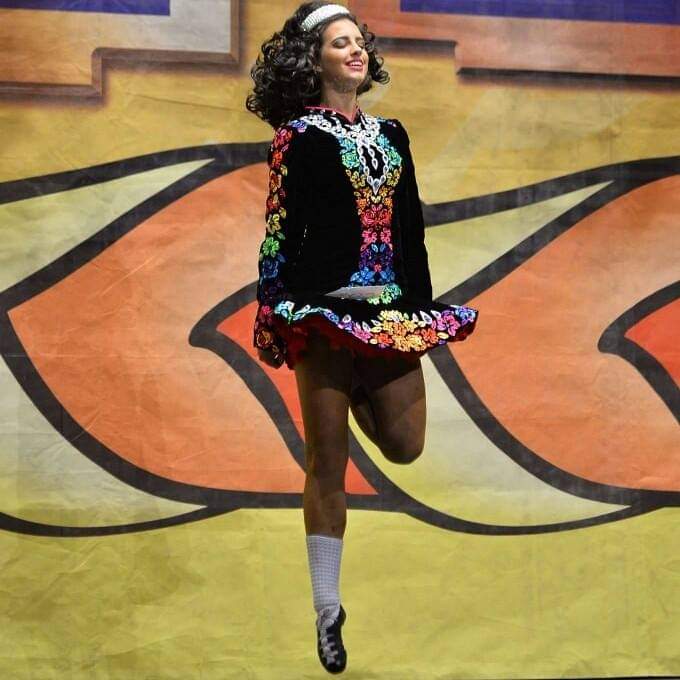Sometimes it’s not what’s on our CVs or our academic qualifications that gives us that certain X Factor which propels us to success. Often it’s simply the ability to adapt, grow and have the confidence to challenge ourselves to step outside our comfort zones.
Tyndall’s goal is to attract and nurture people with diverse talents and excellent skills, enabling all to reach their full potential.
In celebration of the many talents that make up Tyndall, we are showcasing Hidden Talent and Irish Dancer: Megan O’Brien, PhD Student, in IPIC’s Group: III-V Materials & Devices.

What is your hidden talent?
I’m an Irish dancer. I did it competitively for 13 years, retiring in 2016 after placing at the World Irish Dance Championships. During these years I also performed at gigs and festivals with my dance school’s troupe, Planxty O’Rourke: a highlight was performing at the Lorient Interceltic Festival in 2015. I retired mainly due to college, and from then until 2020, I didn’t go near my dance shoes. Then the pandemic hit; inspired by people taking up and learning cool new hobbies, I decided to be lazy and get back into one that I already knew! I don’t do it too often anymore, but I have been roped into one or two performances in Tyndall, and I am trying to do it more regularly now for fitness.
What sparked your interest?
My mother entered my younger sister and me into dance classes outside of school when I was seven. We had been learning a little bit of it in my primary school, but that was more céilí dances rather than solos. I was also not into the sports my peers did, like camogie and soccer (I also wasn’t very good at them!), so my mother thought Irish dancing would be a good alternative instead. It took me about a year to properly get hooked, but once I started to progress to more advanced classes I started loving it.
What is your current role (and research focus if relevant)?
I’m a PhD student in the III-V Materials & Devices group, working on developing a gallium nitride (GaN)-on-sapphire photonic integrated circuit through micro-transfer printing. My work is a mix of device simulation, fabrication and characterization.
How has your hidden talent complemented your role and/or enhanced your research?
It doesn’t matter how talented you are – if you don’t work hard, you will not get results! It also prepared me for disappointments in life. Irish dancing is a very subjective sport: there were times when I felt that the results I was awarded did not reflect my performance on the day, but you learn not to take it personally and try to move on. In research you have bad days in the lab – maybe the devices you spent two months fabricating don’t work, or maybe not as expected. Rather than focusing on these failures, you can try and apply it to future learnings so that it is less likely to happen again.
What advice would you give to someone who wants to try your hidden talent?
Go for it! Make sure to practice what you learn at class – that is the only way you will improve in my experience. Don’t be afraid if you don’t get a step or movement straight away and remember that every single Irish dancer had to start with the basic 123s.
